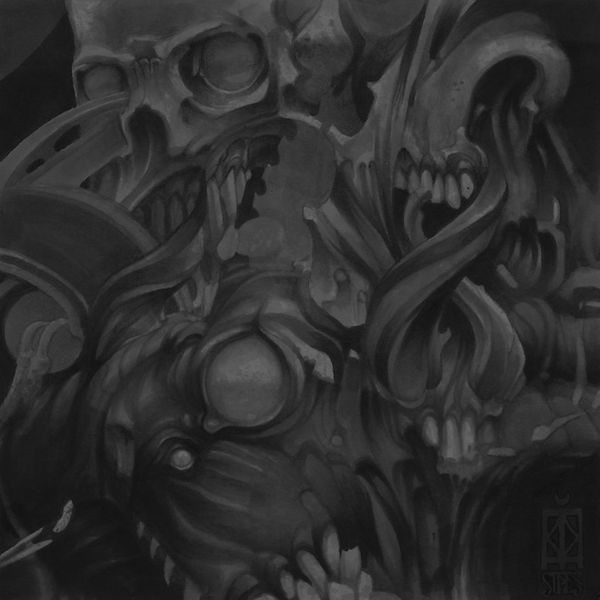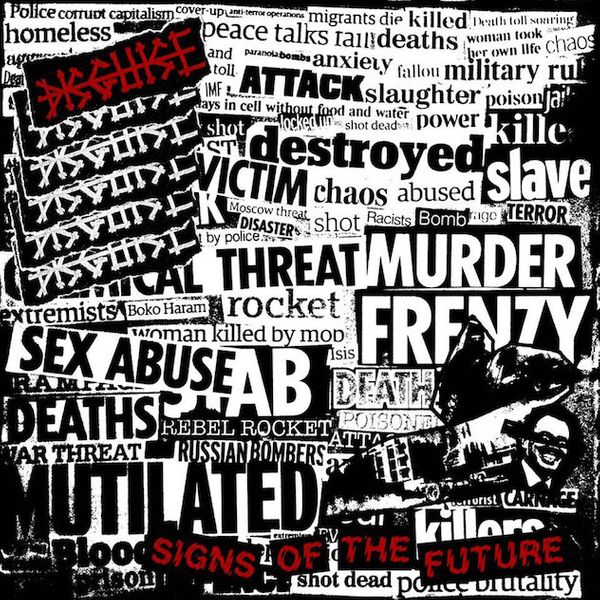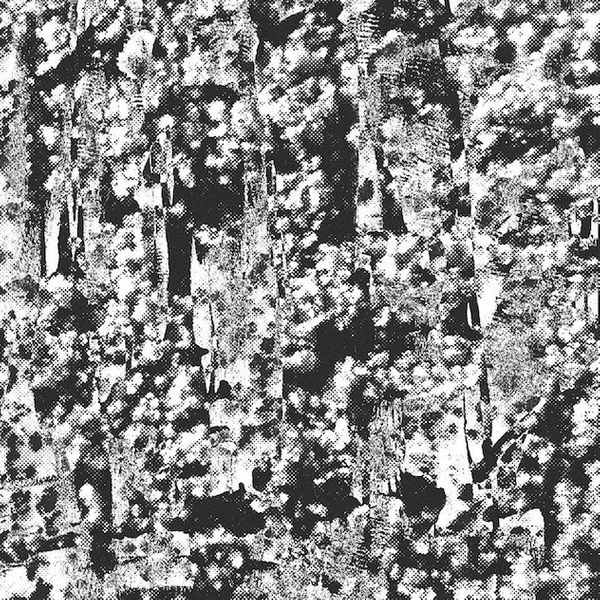Antony Milton: Mrtyu!, Streaming Black, And Off-White
 Published in 2012, Erewhon Calling: Experimental Sounds in New Zealand was the first book to concentrate on how a bunch of “Antipodean misfits and malcontents [forged] new ways and new reasons to make noise.” It’s a great book, immensely readable, and there’s a revealing discussion within where two of New Zealand’s more renowned sound explorers, Antony Milton and Campbell Kneale, talk about being frustrated by labels like ‘sound art’ or other affected tags being attached to their music
Published in 2012, Erewhon Calling: Experimental Sounds in New Zealand was the first book to concentrate on how a bunch of “Antipodean misfits and malcontents [forged] new ways and new reasons to make noise.” It’s a great book, immensely readable, and there’s a revealing discussion within where two of New Zealand’s more renowned sound explorers, Antony Milton and Campbell Kneale, talk about being frustrated by labels like ‘sound art’ or other affected tags being attached to their music
In that conversation, Kneale says:
“‘Sound art’… (yawn) … the idea of my music making being referred to as ‘art’ in order to justify its existence is kind of gross to me… it’s always been about direct and personal connection with the total sound itself. I hate cleverness. It’s a total turnoff…”
Like Kneale, I also find the stuffy language and terminology associated with music that’s deemed experimental to be a real turnoff. I think that sort of vocabulary obscures the feel of boundary-pushing music: masking animated sounds in a haze of pretentious descriptors and dry dialogue.
I’m mentioning all this because I’m going to talk about some of Antony Milton’s music below — and I’ll be looking at some of Kneale’s work in the very near future too. I wanted to underscore, right from the outset, that although Milton’s music is exploratory and unconventional, the very last thing it needs is any kind of sterile examination.
Milton makes space in his music so that, “the audience can fill in any of the gaps that I am unwilling — or in some cases unable — to fill.” In other words, Milton’s music is active and meant to be engaged with. Not autopsied.
 Milton’s been making unorthodox underground music since the early 90s, both as a solo artist and collaborative partner working under numerous monikers. He also founded and curates the label PseudoArcana, which has released a huge range of outlier music over the years.
Milton’s been making unorthodox underground music since the early 90s, both as a solo artist and collaborative partner working under numerous monikers. He also founded and curates the label PseudoArcana, which has released a huge range of outlier music over the years.
Milton’s music roams far and wide across a multitude of genres, and he noted in Erewhon Calling… that he loves that there’s a vague sense of “wrongness” about his work. I’d add that there’s also a strong sense of otherness and ecstatic delirium in his drones, barrages of noise, and more transcendent improvisations and instrumentations.
I’ve written about Milton’s work before, specifically his wonderful 2014 album, There Are Other Possibilities. But recently Milton released a new album, Off-White, after “…nearly 4 years of procrastination and dithering…” I’ll get to Off-White below, but not before noting a couple of other releases from Milton that really struck a chord.

Mrtyu!
I like a lot of different kinds of music. But, in my heart of hearts, I’m really just a knuckle-dragging bonehead, searching for sanity-demolishing walls of noise. That’s why Milton’s harshest recordings are among my favourites, and some of the most strident noise he’s made is under his Mrtyu! moniker.
I first encountered Milton’s work via Mrtyu!’s formidable Blood Tantra (Rituels De Sang Du Culte De Tantra) compilation — which is filled with blown-out ultra-drones shaped by primordial noise. Mrtyu!’s been described as, “a fucked up cross-breed of Nurse With Wound, Khanate and Throbbing Gristle”, and that works well enough. Although, Milton’s own description, “tantric doom and black noise from the hidden valleys of the coldest of Antipodean isles”, captures the chilling atmosphere Mrtyu! summons.
Mrtyu is a Sanskrit word meaning death, and Mrtyu!’s dissonant and disorientating soundscapes are aptly ominous. Menacing drones crawl from sub-bass caverns, clawing their way towards the light. And Mrtyu!’s raw and distorted music has a lot in common with the darkest and doomiest cacophonies of Sunn O))) or New Zealand’s Black Boned Angel.
Milton explores grim sonic and emotional territory with Mrtyu!, but there’s still a lot of variation within Mrtyu!’s discography. Blood Tantra… is a great place to start. But the unnerving guitar and violin interplay on 2009’s The Ornate Shroud is well worth investigating. And don’t skip Mrtyu!’s last full-length, 2012’s Witchfucker, which features psych-fuelled and often scintillating drones.

Antony Milton: Streaming Black
Streaming Black features seven tracks of harsh-edged yet shimmering shoegaze. Or, in Milton’s words: “super loud apocalypse tinged pop songs… [that sound like they’ve been recorded] …using the same crap gear as Burzum in the early 1990s.”
If you ever fancied hearing some long-lost Norwegian black metal band covering My Bloody Valentine, then here’s your chance. Although, given that black metal and shoegaze are best of pals nowadays, it’s worth pointing out that Streaming Black doesn’t feature any of the post-black metal and blackgazefavoured by Deafheaven, Alcest, and others of that ilk.
Milton’s music is no-fi, off-the-grid, and red-raw. And it’s also heart-rending yet wholly euphoric. Streaming Black wraps blissed-out distortion around buzzsaw guitars, and layers summery static over washed-out vocals. Lengthy tracks, like “Let the Shadows Free”, “No More Country Haven”, and the brain-scorching, “No Paper Black”, are bathed in glorious waves of sun-baked feedback. And Milton’s ability for weaving hypnotic hooks into sheer black/white noise is absolutely bewitching.

Antony Milton: Off-White
Milton’s released a mind-boggling array of solo and collaborative albums over the years — and many of those cover vastly different sonic terrain. He’s slowed down in recent years, but if you encounter any of Milton’s music that you don’t enjoy, that’s really not a problem, because he’s got such an extensive and varied discography to explore.
I say that now, because, quite honestly, I wasn’t expecting to enjoy Milton’s latest album, Off-White; mainly because he’d said it was his poppiest album yet. That’s not a reactionary criticism of Off-White’s content; it’s simply a reflection of my favouring Milton’s craggier and coarser work. But, of course, Off-White isn’t poppy in any *conventional *sense.
The album is offbeat and off-kilter, with fractured vocals and a synth-heavy framework, and Off-White finds Milton with, “one foot shamelessly planted in a sentimental nostalgia for 1980’s cry-yourself-to-sleep pop music and the other firmly remaining shin deep in the New Zealand underground.”
When I hit play on track one on Off-White, the ethereal atmospherics on “Hands Off the Cup” reminded me of the minimalist soundscaping of a group like Sigur Rós — who I dearly love, and who I realise probably aren’t on Milton’s list of influences. Still, it was that momentary sense of similarity that encouraged me to take the time and really listen to Off-White, and I’m glad I did.
The mind-melting drone that I love is there on Off-White — see the evocative “Lost Dawn”, or magnificent head-fuckery of “Bubble Walk”. But it’s the album’s final track, the 13-minute “Taking It All”, that’s most impressive. It’s an immersive and mesmerising track, with a propulsive synthwave pulse running through its veins. But Milton also abrades “Taking It All”, shaping it and reshaping with scouring distortion, and yet it remains, like so many of his songs, utterly sublime.



